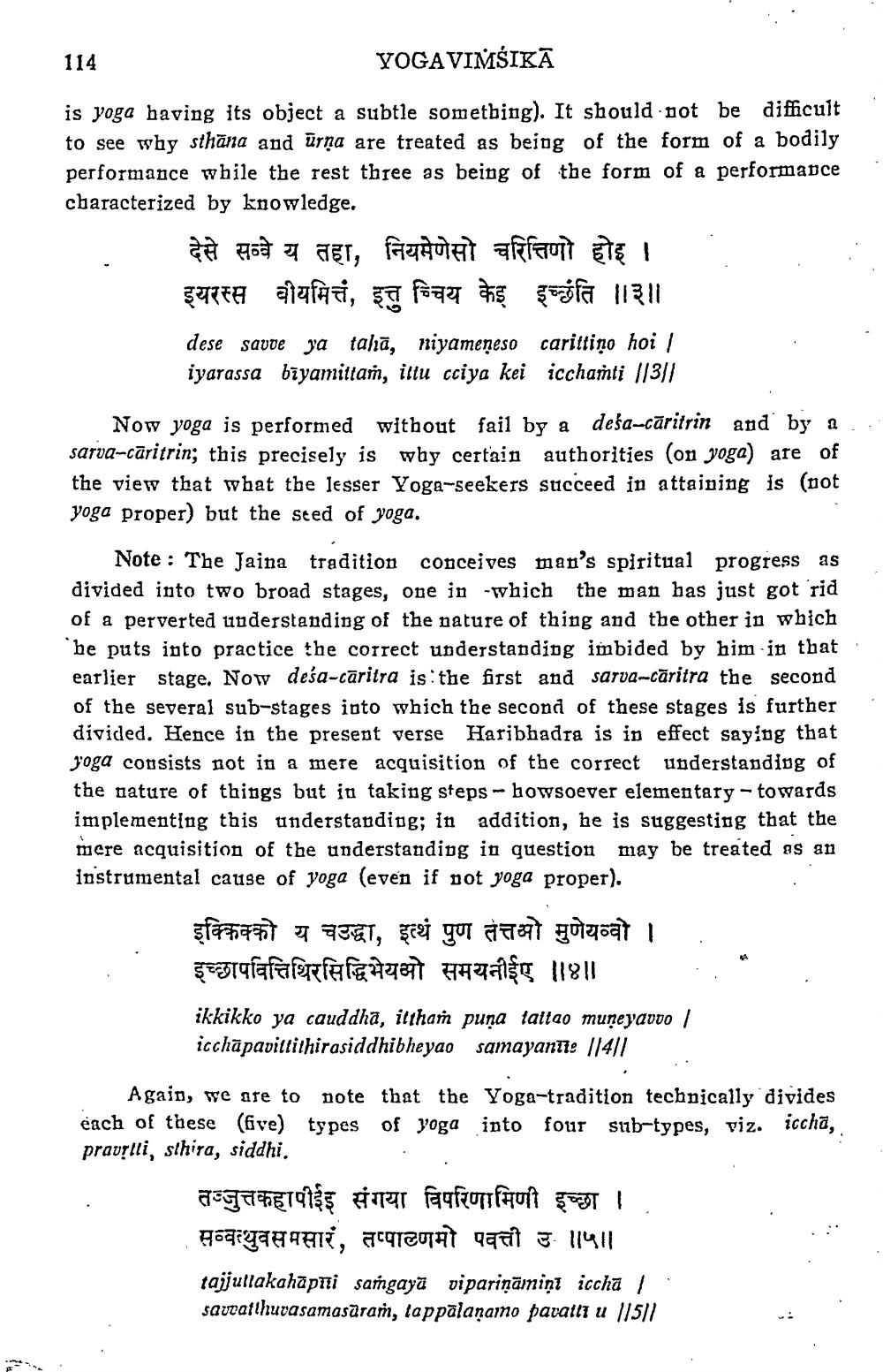________________
YOGAVIMŠIKĀ
is yoga having its object a subtle something). It should not be difficult to see why sthana and ūrṇa are treated as being of the form of a bodily performance while the rest three as being of the form of a performance characterized by knowledge.
114
देसे सब्वे य तहा, नियमेणेसो चरित्तिणो होइ ।
इयरस्स बीयमित्तं इत्तु च्चिय के
इच्छंति ||३||
dese savve ya taha, niyameneso iyarassa biyamittam, ittu cciya kei
carittino hoi / icchamti ||3||
Now yoga is performed without fail by a desa-caritrin and by a sarva-cāritrin; this precisely is why certain authorities (on yoga) are of the view that what the lesser Yoga-seekers succeed in attaining is (not yoga proper) but the seed of yoga.
Note: The Jaina tradition conceives man's spiritual progress as divided into two broad stages, one in which the man has just got rid of a perverted understanding of the nature of thing and the other in which he puts into practice the correct understanding imbided by him in that earlier stage. Now deśa-caritra is the first and sarva-caritra the second of the several sub-stages into which the second of these stages is further divided. Hence in the present verse Haribhadra is in effect saying that yoga consists not in a mere acquisition of the correct understanding of the nature of things but in taking steps- howsoever elementary - towards implementing this understanding; in addition, he is suggesting that the mere acquisition of the understanding in question may be treated as an instrumental cause of yoga (even if not yoga proper).
इक्किक्को य चउद्धा, इत्थं पुण तत्तओ मुणेयव्वो । इच्छापवित्तिथिर सिद्धिभेयओ समय नीईए || ४ ||
ikkikko ya cauddha, ittham puna tattao muneyavvo | icchapavittithirasiddhibheyao samayantie ||4||
Again, we are to note that the Yoga-tradition technically divides each of these (five) types of yoga into four sub-types, viz. iccha, pravṛlli, sthira, siddhi,
तजुत्तकहा पीईइ संगया विपरिणामिणी इच्छा । सव्वत्युवसमसारं, तप्पालणमो पवत्ती उ. ||५||
tajjullakahāpīti saṁgayā vipariṇāmiņī icchā | savvatthuvasamasaram, tappalaṇamo pavatti u ||5||




